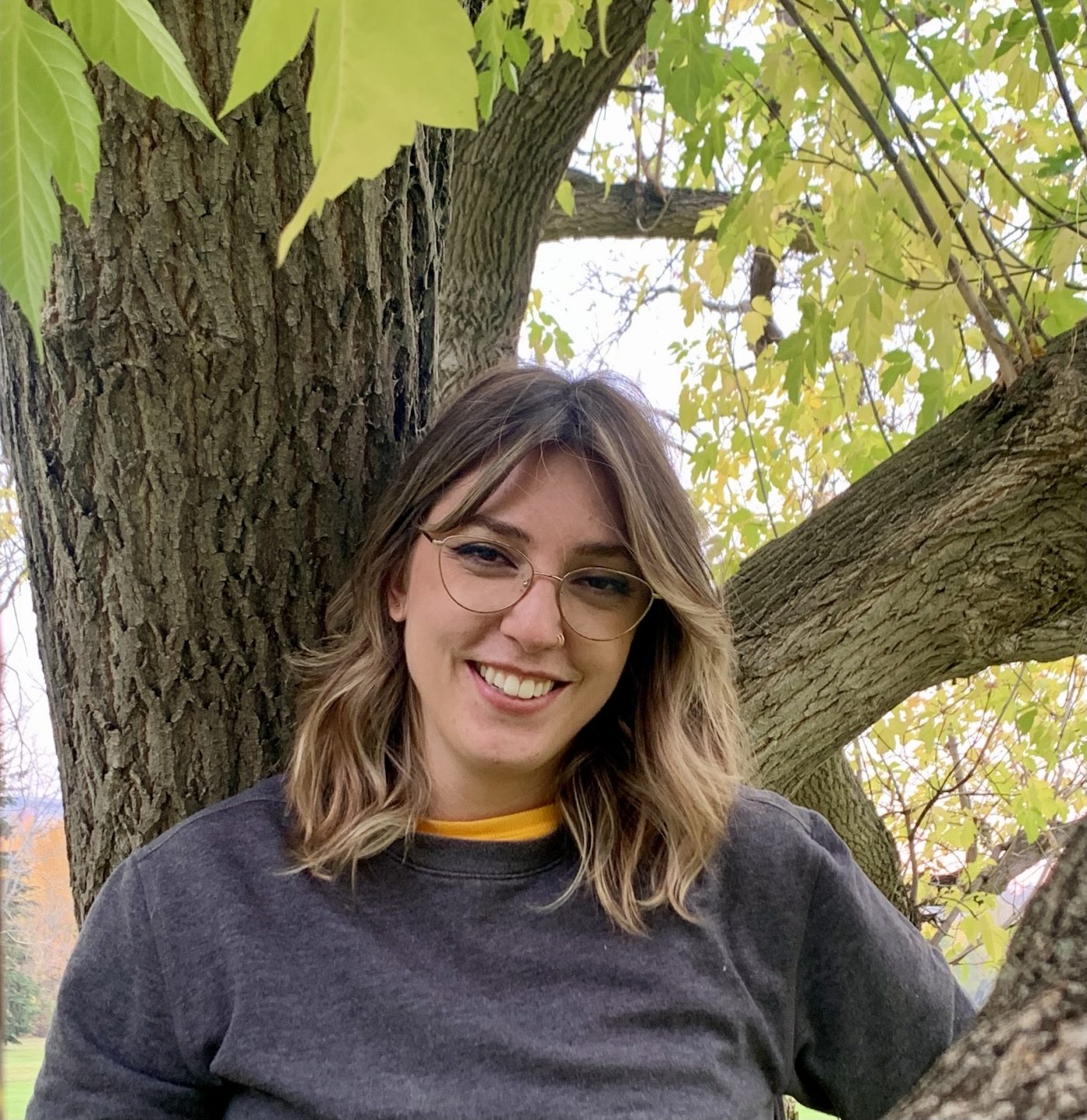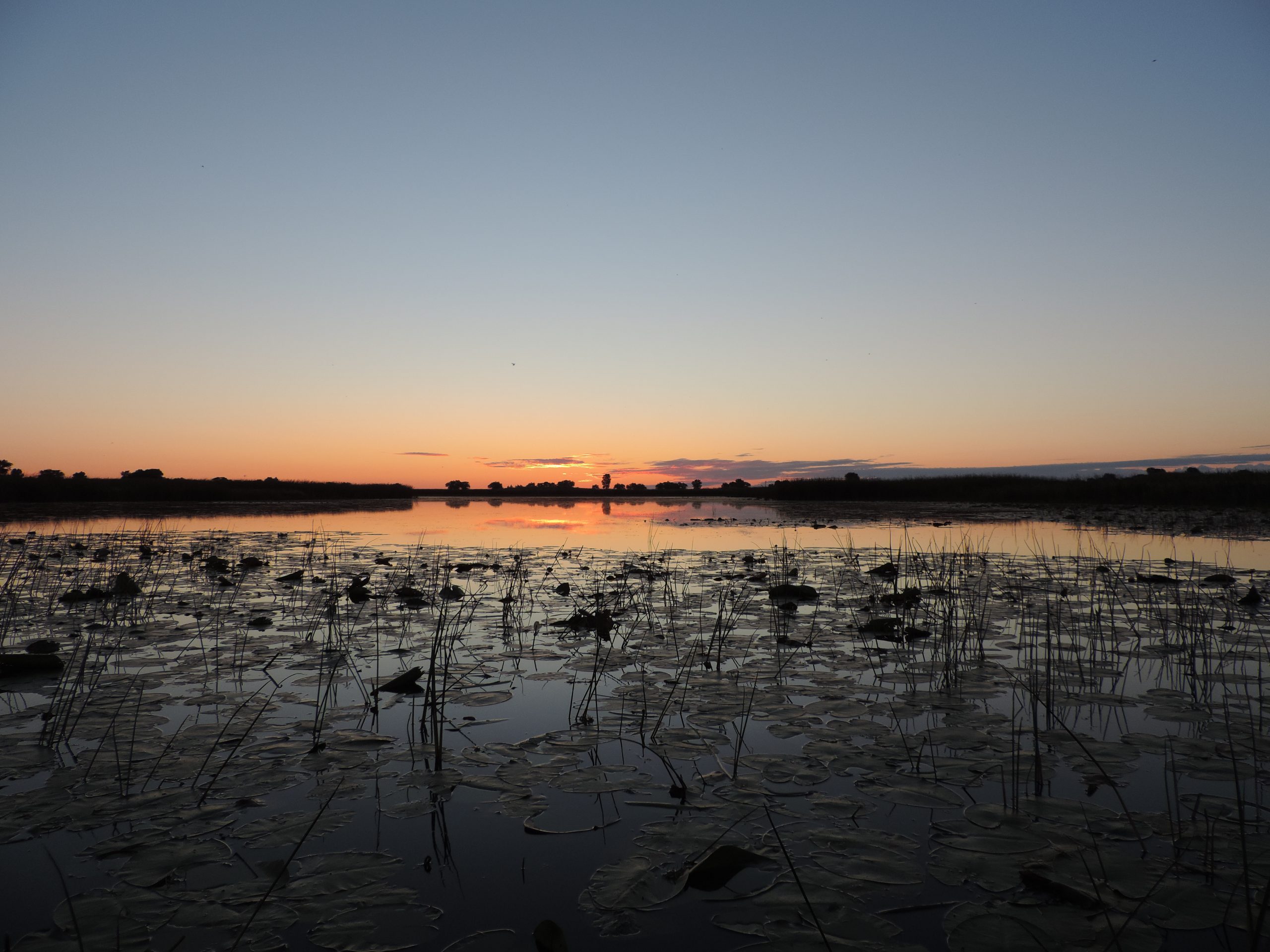Carleton Post-Doc Wins Liber Ero Fellowship
By Ellen Tsaprailis
Courtney Robichaud is Carleton University’s newest Liber Ero Fellowship winner.
This prestigious award will fund the postdoctoral fellow in Biology to co-develop a community-based watershed monitoring program in the Great Lakes.

Canada is home to almost 1.3-million square kilometres of wetlands which is a quarter of the remaining wetlands in the world. Wetlands are delicate ecosystems that are particularly vulnerable to destruction. In southern Ontario, only 11 per cent of marshes from pre-European settlement remain. Ecological restoration provides an opportunity to repair relationships with the land, water and people, resulting in impactful and meaningful conservation work.
The conservation and community ecologist will work alongside her mentors: Carleton Biology Prof. Joseph Bennett; University of Windsor Prof. Catherine Febria; and Ode’imin Indigenous Knowledge Circle.
Robichaud explains that she will work with her mentorship team to support local First Nation partners who are developing a community-based watershed monitoring program, with a focus on wetland restoration and carbon monitoring. This work will weave western science approaches with community-led priorities, building community capacity in all aspects of co-creation, training and mentorship, data collection, analysis, and interpretation.
The goal is to strengthen local First Nations communities practice and science by working together and be an example of how authentic place- and trust-based partnerships can contribute to improved health of the freshwater ecosystems of Nayaano-nibiimaang Gichigamin (the Great Lakes basin).
“We hope this work will influence the way wetlands are managed in southern Ontario and shift restoration paradigms,” says Robichaud. “Receiving the Liber Ero was really important for this work because it gave us the freedom to do this.”
Robichaud has been given $15,000 per year for two years in research funds as a Liber Ero Fellow to make headway on this project.
Prof. Bennett is thrilled to host Robichaud and her research in his Bennett Lab.
“Courtney is an accomplished scientist, with 11 peer-reviewed publications in journals and over 40 talks and conference presentations including a keynote at the first annual National Phragmites Conference. This is an impressive achievement for someone who only received their PhD in 2021,” says Bennett. “Courtney has also received numerous scholarships and awards, including an NSERC Doctoral Scholarship, an Ontario Graduate Scholarship, and was also runner-up for a CSEE Excellence in Doctoral Research Award. Her scientific ability is increasingly being recognized internationally. For example, she was recently made an Associate Editor for the Society of Conservation Biology journal Conservation Science and Practice.
What is particularly impressive about Courtney is her ability to create interdisciplinary science that leads to positive change. I don’t believe I have encountered anyone at her career stage who better exemplifies this ability.”
Robichaud has begun her Liber Ero-funded research and is proud to be a Fellow.
“There are two retreats that Liber Eros go on every year that includes everyone who has ever been a Fellow, and it is really lovely,” says Robichaud. “They are very supportive and if you are a Liber Ero Fellow, you are a Fellow for life.”

Liber Ero Fellowship
This post-doctoral fellowship seeks to support early-career scientists to conduct and communicate world-class research that informs conservation and management issues relevant to Canada.
The program aims to facilitate applied conservation research collaborations that links institutions, researchers, and conservation practitioners; provide support and unique training opportunities for emerging conservation leaders at a critical stage in their careers; and increase the capacity of the Canadian scientific community to address pressing conservation and management issues.